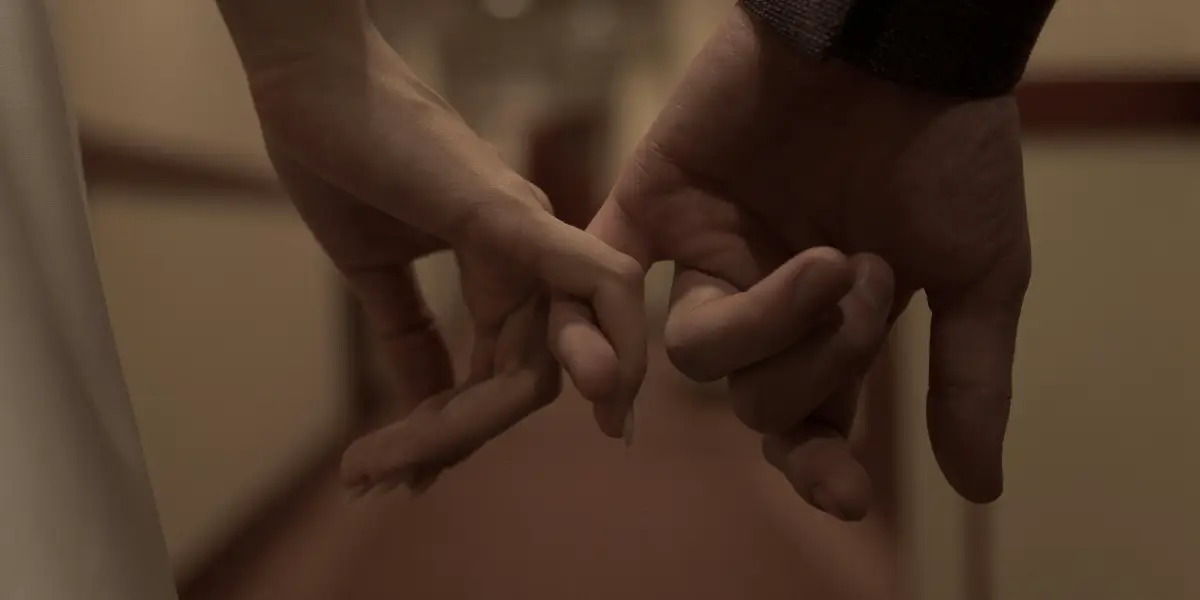What are the essential steps to creating a recovery plan for couples?
Creating a recovery plan for couples starts by setting shared goals and establishing boundaries that prioritize both sobriety and relationship healing. Open communication and mutual commitment are key, and working with a professional—such as through Behavioral Couples Therapy—can help clarify the process. If you are weighing the decision about whether couples should go to rehab together, exploring the essential steps in a recovery plan can provide valuable guidance for your joint path toward healing. A thoughtful plan supports abstinence, rebuilds trust, and strengthens the partnership through ongoing support and structure.
By addressing individual needs alongside shared goals, couples can tailor their recovery journey to meet the unique challenges they face together. Professional input and regular progress reviews keep the plan adaptable and effective as circumstances change.
1. Define a shared vision
Agree on what a healthy, addiction-free relationship looks like for both partners. This shared vision serves as a north star, providing direction and motivation throughout recovery. It keeps both individuals aligned as they navigate emotional, behavioral, and relational changes together.
2. Set individual commitments
Each partner should identify and commit to personal recovery goals such as attending therapy, going to support groups, or practicing self-care. These individual actions create accountability and ensure that both people are actively contributing to the healing process.
3. Create a relapse prevention strategy
Prepare for setbacks by outlining a compassionate and actionable plan. Identify triggers, warning signs, and support tools. This step empowers couples to respond to relapse as a team and to reinforce long-term sobriety without blame or despair.
4. Establish communication guidelines
Healthy communication is crucial for recovery. Develop shared rules for how to handle tough conversations, express emotions, and resolve conflicts. Clear guidelines reduce miscommunication, promote understanding, and prevent conflict escalation.
5. Rebuild trust and intimacy
Trust and closeness need to be rebuilt through consistent actions. Include frequent check-ins, open conversations, and quality time in your plan. These shared efforts help reestablish emotional safety, reinforce connection, and strengthen your bond over time.
How do shared goals strengthen couples’ recovery plans?
Shared goals are the cornerstone of a strong recovery plan, giving both partners direction and motivation. When couples focus on the unique benefits of joint addiction recovery, they can more easily align their objectives and work as a team. These goals should be specific, measurable, and regularly revisited to ensure they remain meaningful and achievable, helping couples stay accountable and resilient throughout the process.
Using SMART goals—Specific, Measurable, Achievable, Relevant, and Time-bound—enables couples to track progress and celebrate achievements. Frequent discussions about these objectives foster ongoing communication and adaptability as recovery progresses.
- Rebuild trust: Focus on consistent behaviors that restore emotional safety, honesty, and dependability within the relationship after periods of strain caused by addiction.
- Support abstinence: Attend recovery meetings or therapy sessions together to reinforce mutual accountability and maintain a substance-free lifestyle as a couple.
- Enhance communication: Build skills like active listening and respectful dialogue to express emotions more clearly and reduce misunderstandings or conflict.
- Engage in positive activities: Plan sober, enjoyable experiences like exercise, hobbies, or weekend outings to reconnect and strengthen emotional intimacy.
- Strengthen conflict resolution: Learn how to handle disagreements with patience, compromise, and respect, using healthier communication techniques during tough moments.
Examples of these goals might include scheduling weekly date nights, reading recovery-related books together, or joining a couples support group. These shared activities help reinforce sobriety and deepen emotional bonds.
What role do boundaries play in couples’ recovery?
Boundaries are vital for protecting each partner’s well-being and creating a supportive environment in recovery. If you’re trying to understand how to help a loved one set boundaries or initiate rehab for a partner, recognizing the importance of boundaries is a crucial first step. They clarify expectations, define acceptable behaviors, and minimize the risk of enabling or triggering actions. Effective boundaries are openly discussed, mutually agreed upon, and consistently maintained.
Clear boundaries help prevent emotional harm, ensure accountability, and provide a sense of safety within the relationship. Including these boundaries in the recovery plan offers a concrete reference point during challenging moments, reducing misunderstandings and fostering trust.
Physical boundaries
Physical boundaries may include maintaining personal space, removing substances from shared environments, or limiting physical contact during moments of conflict. These boundaries help create a space that prioritizes safety and sobriety for both partners as recovery progresses.
Emotional boundaries
These boundaries protect each partner’s emotional well-being by allowing space during arguments or taking time-outs to cool down. They ensure that emotional processing happens without added pressure or harm, helping couples navigate conflict in healthier, calmer ways.
Financial boundaries
Financial boundaries may involve managing shared accounts, setting budgets, or discussing spending limits. This helps reduce stress, promotes accountability, and ensures that finances are not misused in ways that could jeopardize recovery or the relationship’s stability.
Social boundaries
Couples may agree to avoid certain places, events, or people associated with past substance use. Setting these limits helps reduce temptation and prevents exposure to environments that may trigger relapse or create conflict between partners during recovery.
Recovery agreements
These boundaries include structured commitments such as attending therapy, participating in support groups, or checking in regularly. Agreements help partners stay on track, hold each other accountable, and reinforce mutual investment in both sobriety and the relationship.
How does couples therapy support recovery plans?
Couples therapy offers a structured approach for developing and maintaining a recovery plan. By learning effective communication strategies in therapy, couples gain practical tools to navigate challenges and strengthen their relationship. Therapy sessions address both substance use and relationship dynamics, equipping couples with skills for conflict resolution, relapse prevention, and emotional healing.
Typically, therapy involves 12 to 20 weekly sessions, balancing efforts to maintain sobriety with intentional work on rebuilding trust and connection. Assignments and regular check-ins between sessions help couples practice new skills and reinforce progress.
Key benefits of couples therapy in recovery
- Mutual participation: Therapy treats both partners as equal contributors, fostering shared responsibility for recovery.
- Relapse prevention: Couples learn strategies to identify triggers and support each other through setbacks.
- Safe environment: Sessions provide a confidential space to address sensitive issues and develop healthier interaction patterns.
- Skill building: Couples acquire practical tools for communication, trust-building, and conflict resolution.
What are the key considerations for successful joint recovery?
Successful joint recovery depends on both partners’ commitment to the process, honest self-reflection, and adaptability as circumstances change. Couples should approach recovery as a shared journey, regularly revisiting their plan and celebrating progress together. Recognizing when to seek additional support and remaining open to change are essential for long-term success.
Core elements for effective couples recovery
- Active participation: Both partners need to engage consistently in recovery efforts, offering mutual support and encouragement through every stage of healing and growth.
- Professional support: Guidance from therapists or addiction counselors helps structure the recovery process and resolve emotional or behavioral challenges effectively.
- Ongoing review: Regular check-ins help couples evaluate progress, update goals, and adjust boundaries to ensure the plan remains practical and relevant.
- Community connection: Being part of peer support groups adds motivation, accountability, and reassurance that others are facing and overcoming similar struggles.
- Flexibility: Recovery plans should adapt to life changes, setbacks, or new insights, allowing both partners to stay aligned and committed over time.
What makes Carrara Rehab’s luxury addiction treatment unique?
At Carrara Rehab, I offer a truly unique approach to addiction recovery by combining ultra-luxury amenities with evidence-based, personalized care in the heart of Malibu, California. My clients experience a level of privacy, comfort, and individualized attention that sets Carrara apart from traditional rehab centers. By integrating holistic therapies such as yoga, cranial sacral therapy, and acupuncture with proven treatments like Cognitive Behavioral Therapy (CBT) and trauma-informed care, I ensure every aspect of your well-being is addressed. My serene, resort-like environment is designed for those who not only seek sobriety but also wish to transform their lives in comfort and discretion.
Every detail at Carrara Rehab is crafted for those who value privacy and luxury. With private rooms, gourmet meals, spa services, and state-of-the-art fitness facilities, I create an atmosphere where you can heal without compromise. My high staff-to-patient ratio guarantees you receive the one-on-one care needed for a successful recovery journey. Whether you are a high-profile individual or someone who simply desires the best in addiction care, Carrara’s blend of confidentiality, holistic support, and luxury amenities offers a comprehensive path to lasting wellness.
- Ultra-luxury amenities: Enjoy private suites, gourmet dining, spa treatments, fitness centers, and tranquil outdoor spaces, all designed for your comfort and relaxation during recovery.
- Personalized treatment plans: I tailor every program to your unique psychological, emotional, and physical needs, blending holistic therapies with evidence-based medical care for optimal results.
- Discreet and private setting: My Malibu location and strict confidentiality protocols make Carrara the ideal sanctuary for celebrities, executives, and anyone seeking privacy and peace of mind.
Which luxury rehab centers does Carrara Treatment offer, and how do they differ?
As Carrara Treatment, I provide a selection of exclusive luxury rehab centers, each offering a distinct environment and suite of amenities to suit your personal preferences and needs. The LA Carrara House, The Hollywood Hills Carrara House, and The Malibu Beach House are designed to deliver the same high standard of care and privacy, yet each location brings its own signature style and atmosphere. Whether you want the vibrant energy of Los Angeles, the iconic glamour of Hollywood Hills, or the serene oceanfront of Malibu, my centers ensure your journey to recovery is as comfortable and personalized as possible.
Each Carrara location is equipped with private accommodations, holistic wellness programs, and discreet, attentive staff. The LA Carrara House offers urban elegance and proximity to city conveniences, while The Hollywood Hills Carrara House provides a secluded retreat with sweeping views and lush landscapes. For those who crave the calming effect of the ocean, The Malibu Beach House delivers a tranquil, beachside experience with all the benefits of Carrara’s luxury care. Your path to healing is supported no matter which location you choose, as I maintain the same commitment to privacy, individualized treatment, and holistic wellness across all centers.
- The LA Carrara House offers a sophisticated, private environment in the heart of Los Angeles, perfect for those seeking both luxury and urban convenience.
- The Hollywood Hills Carrara House provides a secluded sanctuary with breathtaking views, ideal for clients who value discretion and natural beauty.
- The Malibu Beach House features a peaceful, oceanfront setting, combining the soothing sounds of the sea with all the amenities of a high-end resort.
Ready to experience transformative, luxury addiction recovery?
If you’re seeking an addiction treatment center where privacy, comfort, and holistic care are paramount, Carrara Rehab is your answer. My exclusive facilities in Los Angeles, Hollywood Hills, and Malibu Beach offer more than just a place to recover—they provide a sanctuary for complete mind, body, and spirit transformation. With personalized treatment plans, holistic therapies, and an unwavering commitment to discretion, I help you reclaim your life in the utmost luxury. Take the first step toward a new beginning with Carrara, and discover how true healing feels when every detail is designed for your well-being.
- Comprehensive wellness: From fitness and nutrition to spa treatments and mindfulness, my programs address every aspect of your recovery journey.
- Unmatched privacy and comfort: Each location is a haven of tranquility, ensuring you can focus on healing without outside distractions or concerns about confidentiality.
- Elite, personalized care: My dedicated team is committed to supporting you every step of the way, with a high staff-to-client ratio and individualized attention.
Britney Elyse has over 15 years experience in mental health and addiction treatment. Britney completed her undergraduate work at San Francisco State University and her M.A. in Clinical Psychology at Antioch University. Britney worked in the music industry for several years prior to discovering her calling as a therapist. Britney’s background in music management, gave her first hand experience working with musicians impacted by addiction. Britney specializes in treating trauma using Somatic Experiencing and evidence based practices. Britney’s work begins with forming a strong therapeutic alliance to gain trust and promote change. Britney has given many presentations on somatic therapy in the treatment setting to increase awareness and decrease the stigma of mental health issues. A few years ago, Britney moved into the role of Clinical Director and found her passion in supervising the clinical team. Britney’s unique approach to client care, allows us to access and heal, our most severe cases with compassion and love. Prior to join the Carrara team, Britney was the Clinical Director of a premier luxury treatment facility with 6 residential houses and an outpatient program




